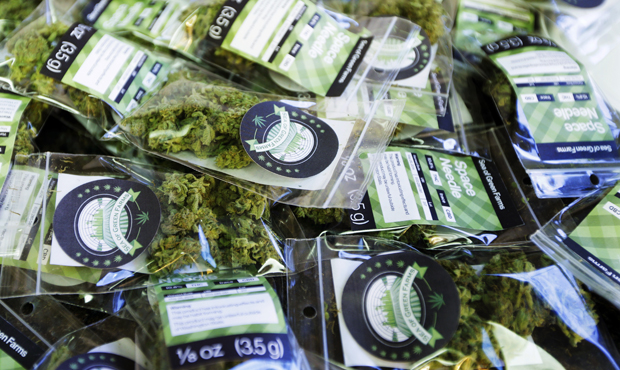Millennial roundtable: Surviving Seattle’s gig economy
Jul 22, 2019, 3:26 PM | Updated: 4:04 pm

Surviving in today's gig economy is a whole different animal. (Photo by Drew Angerer/Getty Images)
(Photo by Drew Angerer/Getty Images)
To many millennials, the idea of today’s so-called “gig economy” is a fairly new concept. Between that and services like Airbnb, making money outside of the normal 9-to-5 work schedule has never been easier… or has it? On this week’s millennial roundtable, KTTH’s Saul Spady, producer Daron Casey, and MyNorthwest writer Dyer Oxley break it all down.
“When we say ‘gig economy,’ I’ve always argued that we just kind of relabel things,” Oxley pointed out. “I think the gig economy as we know it today is really just what like our grandparents called ‘the economy.'”
The idea of a gig economy is nothing new to commerce, with freelancing and short-term contract work having been around for the better part of human history. What’s different today, though, is ease of access.
“Now, we’re finding newer and newer ways of bringing convenience to people,” said Casey. “I think we need to embrace that. That’s awesome, because our lives are getting easier because of this technology.”
Millennial roundtable: Will millennials use driverless cars?
One realm we see that both in Seattle and beyond is in short-term rentals, and more specifically, Airbnb.
Recent legislation passed by Seattle City Council cut a good deal of red tape for homeowners looking to rent out mother-in-law units on their property. But while it was seen as a measure to provide more available, affordable housing, there’s the possibility those benefits could be negated by short-term rentals.
“I’ve always worried just a little bit as a renter in this city — I want access to that cottage,” said Oxley. “I want cheaper, more available rent for me to actually live in the city of Seattle, because it’s very difficult for a lot of folks like us, and those backyard cottages are viewed as relief for a lot of people.”
“That’s where I really agree with Dyer, and actually our conversation has changed my thought process,” Spady noted. “I think people always inherently will go to the place where they make the most money, so we have to find a way to encourage them to engage and use these mother in law cottages, at least where we can as longer rentals.”
For some, though, there are concerns that such an approach would encourage over-regulation.
“I think a lot of gig economy success relies on free market, and I think you ought to be free to do with your property what you want, and charge what you want for people to stay at your property,” Casey countered.
Those opportunities are evident almost everywhere you look. From driving for a rideshare service like Lyft or Uber, to newer services like Turo that let you rent someone’s car, working at a 9-to-5 is no longer a necessity.
Gig economy
That includes Casey, who drove for Uber while he was between jobs.
“It was fantastic,” he described. “It was such a great way to bring in cash when I was you know whenever I was available — it so great being able to be my own boss and make my own schedule.”
Spady shared a similar story, after using Turo’s car rental service while down in Las Vegas.
What would Seattle look like with autonomous cars?
“The guy who rented me a Mustang over Turo … mentioned to me he used to be a mechanic on high end race cars, but then his back got really injured and he couldn’t do it,” said Spady. “He started dealing at Caesars … he mentioned he absolutely hated it. He’d heard about Turo from somebody who was sitting at his table, and he’s like, ‘Oh man I can fix cars.’ He went down and bought a Mustang convertible, started renting it out, and now he works two days a week dealing. He works three days a week fixing up his cars and renting them out to people, and he told me that this is kind of his dream job.”
“That’s where it may be hard for baby boomers and some of our older listeners to understand this, but for that gentleman, that job would have never existed,” he added. “I don’t think he would have reached the level of happiness that he has now in a classic 9-to-5.”
Listen to the Saul Spady Show weekday mornings from 6-9 a.m. on KTTH 770 AM (or HD Radio 97.3 FM HD-Channel 3). Subscribe to the podcast here.












